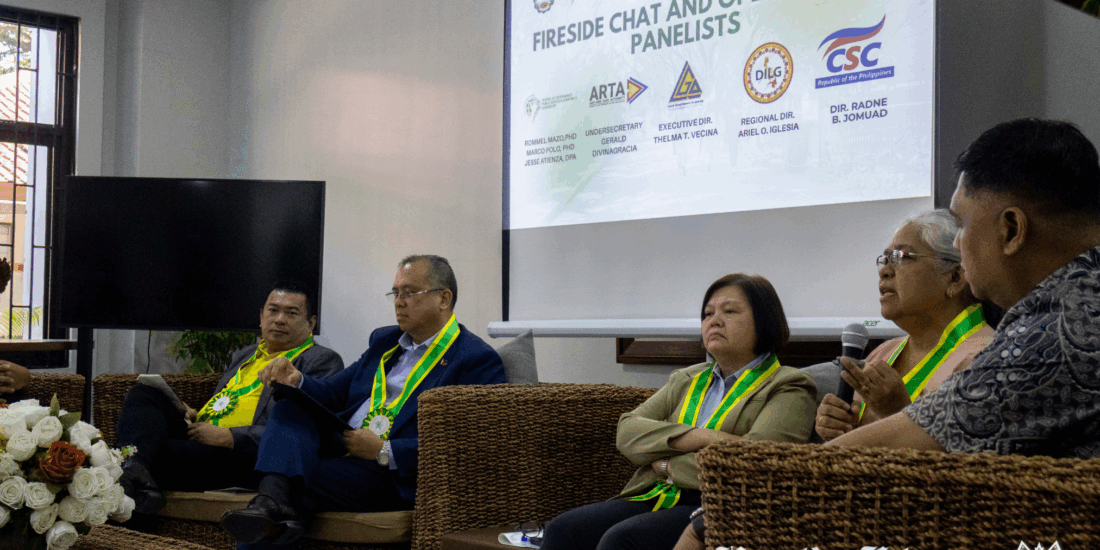8 out of 10 students not ready for distance learning says DLSU-D survey
Originally published in The HERALDO FILIPINO Broadsheet Vol. 34 Double Issue
In the research brief of end-of-class evaluation survey, data showed that 8 out of 10 (81 percent) of student participants were not ready for distance learning.
Vice Chancellor for Academic and Research (VCAR) Marco Saez stated in the write-up that the “End-of-class evaluation: survey of student capability for distance learning, COVID-19 awareness during quarantine period, and plans for the coming school year” was done through Google Forms and that “heads of colleges and department, student councils, and the Heraldo Filipino posted links of the survey online.”
Commencing from May 17 until May 30, the survey gathered 3000 responses or 33.81 percent out of the total 8872 college and high school population of the academic year (AY) 2019-2020.
Unreadiness in well-being
Exactly 95.7 percent of the students had difficulties in concentrating on their studies during the pandemic, which was supported by the 91.8 percent who agreed that there were “more important matters that everyone should care for aside from having online classes” such as providing basic needs and protecting oneself from the virus. Furthermore, 93.7 percent worry that someone in their family may get infected with COVID-19.
Other concerns of the students include their family situation (85.8 percent), inability to stay positive (68.7 percent), difficulty sleeping (57.4 percent), and losing appetite (45.6 percent).
The result also showed that 58.7 percent were undecided if they will enroll next AY for a semester of distance learning mode, should resumption of the normal classroom setting be disallowed.
Online classes experience
When asked about internet connection, 7 out of 10 (68.6 percent) answered that they have a personal broadband or WIFI but 40.4 percent considered their connection unreliable and unstable. As for the primary gadget they use to comply with online classes, the majority (48.6 percent) use their mobile phones.
In terms of quality of assessments, 4 out of 10 (40.2 percent) thought the instructions for their classes were unclear and insubstantial. When asked if their classes offered simplified and well-organized lessons, 39.6 percent stayed neutral and 38.7 percent disagreed.
Most participants (32 percent tried much, 35 percent tried very much) tried their best to comply with the requirements. However, on the matters of classes and thesis learning, only 0.8 percent responded that they were satisfied, the majority learning very little (33.5 percent dissatisfied, 37.7 percent very dissatisfied).
In terms of Schoolbook experience, only 8.3 percent of the responses agreed that the Schoolbook was “easy to navigate especially in the area of submission of outputs”, while most (31.9 percent) remained neutral. There are also classes that utilized more than one platform like the 42.9 percent who used both Schoolbook and Messenger.
While in the topic of technical support which is “available, prompt, and easily reached via phone calls, chats or emails,” most participants were neutral (47.3 percent). When asked if collaboration among students was carried using online platforms, the majority were also neutral (35.8 percent).
Feedback on faculty
Meanwhile, 4 out of 10 (41.4 percent) responses were unsatisfied with how teachers handled their academic matters. Similarly, 40.3 percent found their teachers late in providing feedback and 36.8 percent found the resourcefulness of the faculty’s usage of other platforms such as Facebook Live, Google Classroom, SAP Litmos, Microsoft Teams App, and others to be lacking.
Despite this, the majority (41 percent) found the deadlines for submission of outputs “realistic and flexible”.
Additionally, responses were divided on the statement “majority of the faculty are readily available and willing to respond to questions and concerns”, with 31.6 percent agreeing, 36.3 percent neutral, and 32.1 percent disagreeing.
Unaddressed student concerns
Through open-ended questions, the participants identified some of their unaddressed concerns by the DLSU-D administration: failure to heed students’ pleas, tuition fee rebate, suspension of online classes, assessments and lessons incompatible with their connectivity capability, unclear guidelines and line of communication from admin to student regarding payments, graduation, thesis matters, and how teaching has just been uploading of lessons.
On the statement about the University handling student concerns well during the quarantine period, the majority disagreed (26.3 percent disagreed, 38.8 percent strongly disagreed).
In addition, when asked about how their own college or department handled their concerns, the majority also found it unsatisfactory (27.8 percent dissatisfied, 26.8 percent very dissatisfied).
While, 42.6 percent were neutral on the topic of faculty and administration effort in carrying on with online classes.
As per the OVCAR email, the initial results for the end-of-class evaluation survey are yet to be validated but Saez encouraged surfacing the data, stating “I think it is important that we have to understand, embrace, and respond to what the document tells us.”




